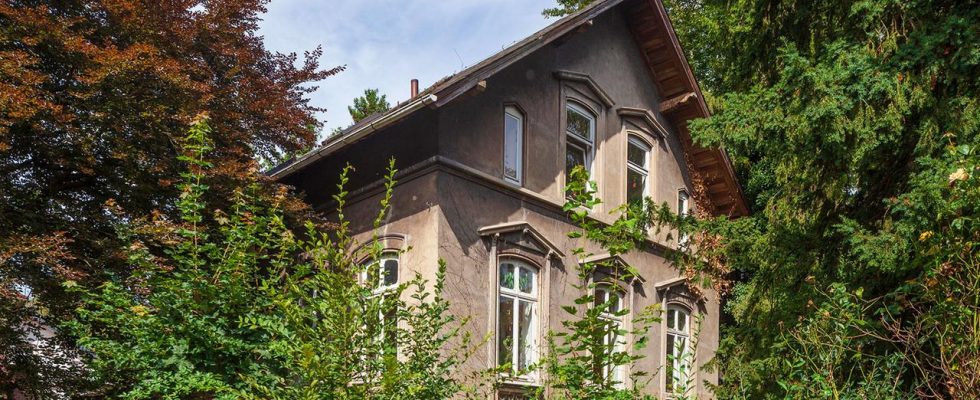background
The so-called Heating Act with its obligations regarding energy-saving renovations has recently caused a lot of confusion among homeowners. Most people don’t have to do that much at first.
Hardly any other topic triggers as much discussion and emotion as energy renovation. Am I obliged to insulate the facade of my new house? Do I have to replace the heater? And how can I improve the building so that I use less expensive energy? These are all questions that concern buyers of an older home.
Many people are afraid of renovation
Unrenovated existing houses were a no-go for many potential home buyers last year: at least that’s what the dream home study by real estate finance company Interhyp shows. 64 percent of the 2,000 respondents excluded old buildings when deciding to buy a property. For comparison: renovated existing properties were only excluded by six percent and energy-efficient new buildings by twelve percent.
“When you buy a property, you actually want to worry as little as possible afterwards. You want to get the key, you want to move in and then just live in peace,” says Sandra Duy, expert for energy-efficient renovation at the consumer magazine “Finanztip “, in the podcast “Gold & Ash: Project House Purchase” from ARD financial editorial team. That is the ideal case.
According to the survey, most people are afraid of the high cost of renovation. This is often necessary because old houses or apartments are poorly insulated and may also have old heating. And if CO2 prices continue to rise, then energy costs will become incalculable. But: Renovation does not always have to involve a lot of effort.
Is buying an unrenovated house worth it?
“There are measures that have to be carried out and that the state prescribes – for example if thermal protection is not yet in place,” explains Duy. These are usually measures that are quite simple and not that expensive to carry out: for example, insulating pipes or insulating the top floor ceiling. “These are things you can do yourself. It doesn’t cost much, but it’s really worth it.”
However, larger measures such as insulating the facade, replacing the windows, installing a ventilation system or replacing the entire heating system are significantly expensive. This can quickly add up to 20,000 to 60,000 euros. That doesn’t sound particularly attractive, even if an older house is much cheaper than a new one. The big question is: Can buying an unrenovated existing house still be worthwhile?

Podcast “Gold & Ash: House Purchase Project”
In the first season of “Gold & Asche” the ARD financial editorial team The most important things when buying a house are examined step by step in seven episodes – with background information and expert knowledge. You can hear it in the ARD audio library and wherever podcasts are available. The individual episodes You will find here.
Episode 1: Is it worth buying a house? (21st of February)
Episode 2: The Right Time to Buy a Home (February 21)
Episode 3: How much house can I afford? (February 28)
Episode 4: What do I have to pay attention to when getting a loan? (6th March)
Episode 5: How the state provides financial support for buying a house (March 13)
Episode 6: Everything about energy renovation (March 20)
Episode 7: Was everything better before? (27th of March)
First of all, you should consider whether everything has to be worth it. Even with a new kitchen, you often spend 10,000 euros, but then don’t wonder when you’ll actually get the money back. It’s often simply about comfort. And if the house is better insulated and can retain heat better, the quality of life increases.
Apart from that, a house often needs to be renovated anyway after it has been purchased. For example, if the facade needs to be re-plastered, you can also re-insulate it. The same applies to the roof. “Approaching the renovation at the same time as an energy-related renovation makes perfect sense because the additional costs for the energy-related part are then really relatively low,” emphasizes expert Duy. Then it could even be worthwhile.
Oil and gas heating systems will continue to run for now
And yet: According to a survey by the ImmoScout24 portal in September, over half of property owners in Germany were not planning any voluntary renovation measures. As an owner, there are also obligations that are regulated in the Building Energy Act (GEG). It has been in force since January 1, 2024 and is intended to make the entire building sector more climate-friendly. The key point: All heating systems should generally be operated with a share of 65 percent renewable energy.
However, this only applies to newly installed heating systems, and initially only in new development areas. Functioning oil and gas heating systems should continue to run and can be repaired if necessary. There is even a five-year transition period for broken heaters. There is no obligation to exchange – yet – but from 2026 at the earliest.
Many changes, transition periods and exceptions do not necessarily make it easy for homeowners to understand the law. In addition, there are specifications not only for heating, but also for other parts of a house. But: Although there is a lot in the heating law, most people won’t be able to get that much in the near future.
Buyers or heirs “don’t have to be afraid”
“The Building Energy Act previously stipulated that very specific renovation measures must be carried out when there is a change of ownership, which amounts to insulating the top floor ceiling and the pipes,” explains Alrun Jappe, expert for state funding and building financing at Stiftung Warentest. These are rather favorable measures.
The heating only needs to be replaced if it is older than 30 years and is a standard boiler. “They almost don’t exist anymore. So there is condensing and low-temperature technology almost everywhere, even if the devices are older,” says Jappe. And there is no obligation to exchange them. “Someone who buys or inherits a house now doesn’t have to be afraid of suddenly investing tens of thousands of euros in renovation.”
There are actually not that many obligations when it comes to renovation for existing houses. At the same time, according to the experts, you should generally think about how you can improve your house. First: to increase the feel-good factor. Second: to save energy. And thirdly: because there are a lot of funding and subsidies.

